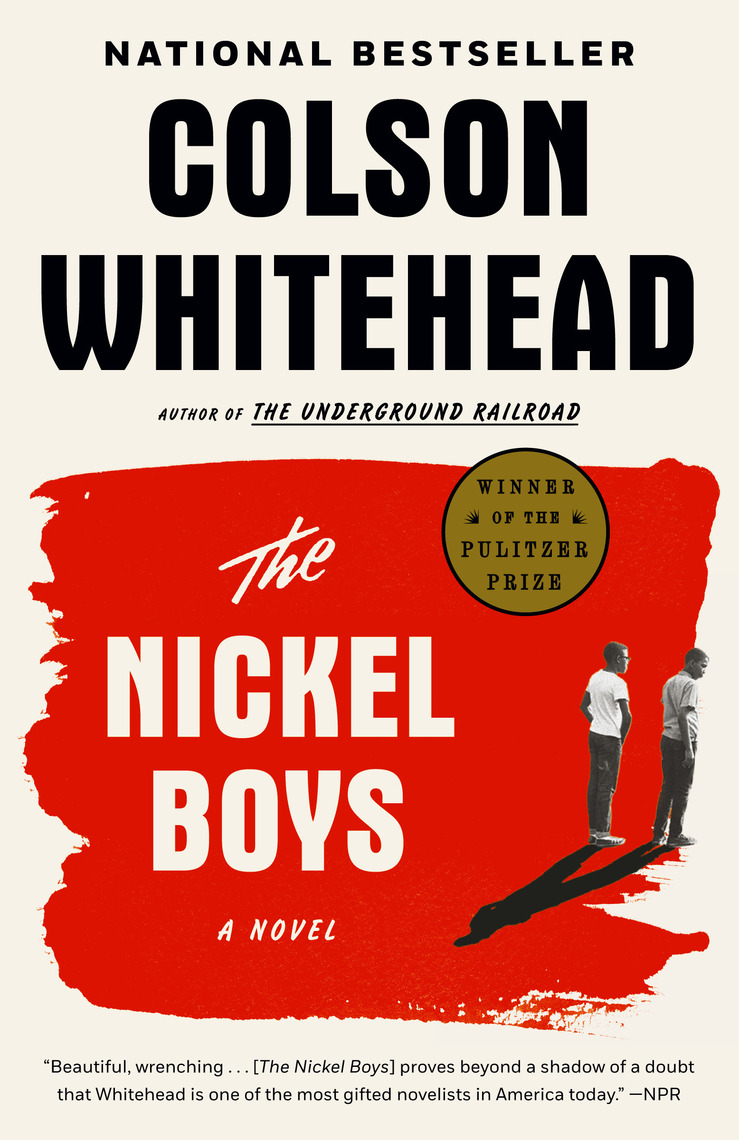
The Nickel Boys
In a grazing pasture on the North side of what was once the campus of the Nickel Academy for Boys, an archaeology student from the University of Florida stumbles across a field of bones: unmarked graves. She and her cohort are there to excavate the official graveyard of the school before the lands are developed into an office park. The small bones in the known cemetery are already suspiciously often fractured, suggesting breaks and injuries before death: what history of abuses does the field of unmarked bones testify to? Thus begins Colson Whitehead’s prizewinning novel The Nickel Boys. Devastatingly, it’s inspired by true events that came to light about the Dozier School for Boys in Marianna, Florida, in 2014.
The book relates the story of Elwood Curtis, a goody-two-shoes raised by a strict grandmother in Tallahassee: a hard-working, intelligent boy all set to be the first member of his family to gain a university education. A teacher who recognises his potential encourages Elwood to enrol in some early college classes while still at high school, and the boy is on his way to his first class when fate strikes him a nasty blow and he ends up – through no fault of his own, the victim of some remarkably bad luck and the systemic racism of the Jim Crow South – found guilty of a crime he had nothing to do with and sentenced to a term at the Nickel Academy. The novel recounts his time there, as he and his fellow inmates suffer unspeakable abuses.
Whitehead’s novel is a page-turner, and he seems to write completely effortlessly. The narration is thoroughly gripping, as the story is related with sensitivity and with a perennial regard for the dignity of its victims. Elwood draws energy and inspiration from the words of his long-time hero Martin Luther King Jr.: “Throw us in jail and we will still love you… But be assured that we will wear you down by our capacity to suffer…” Elwood is long occupied by the notion of this ‘capacity to suffer’, and it seemed to me that it is in precisely this that the novel somehow elevates those who suffer to a dignity that those who cause their suffering will never attain.
It had a bit of the rhythm of a boy’s adventure story, or the kind of narrative familiar from the likes of Harry Potter – except that the experiences of the Nickel boys cut very close to the bone: they are infinitely darker in nature and have far too much of the real world in them. This had, for me, a discomforting effect, which I think is a productive way for the novel to tread the line between drawing the reader in and keeping them uneasy because there is more at stake here than a mere story of boys tackling challenges at boarding school. I would have loved to see a female character that was more than a supportive grandmother, a supportive romantic interest, a vapid wife or a cruel nurse – but then it’s the story of a school for boys run by men. Regardless, I recommend this book in a heartbeat.
Order the book here and support us! The work behind poco.lit. is done by us – Anna und Lucy. If you’d like to order this book and want to support us at the same time, you can do so from here and we will get a small commission – but the price you pay will be unaffected.
